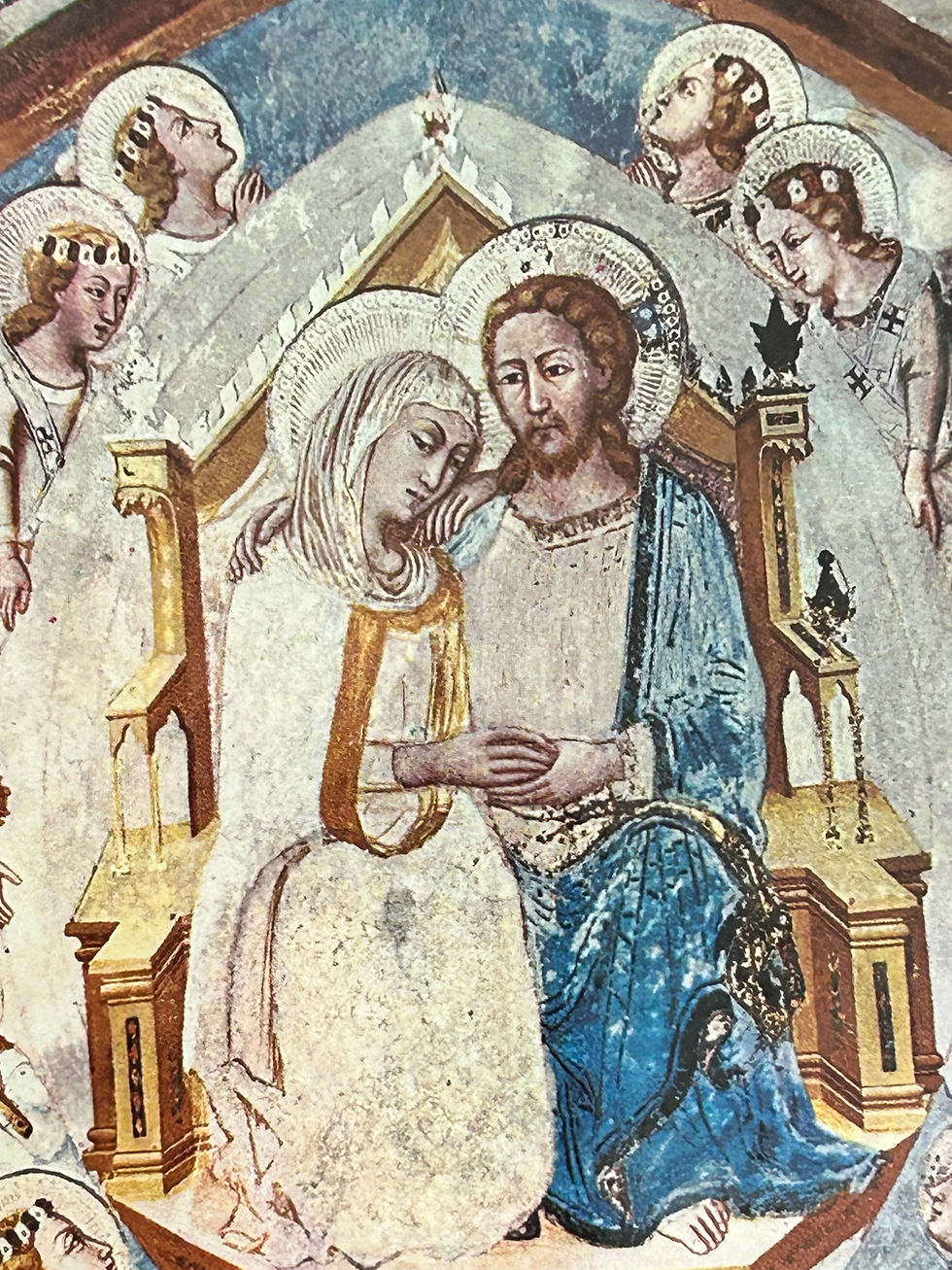Living the Truth according to St. Bernard
- Dr. Anthony Lilles

- Aug 18, 2009
- 4 min read
St. Bernard of Clairvaux has a dynamic understanding of the Truth that is vital for anyone who wants to grow in prayer. It is the first step on his ladder of humility. For him, Truth is not merely something we seek with our mind but a reality we embrace with our lives. Truth is not merely an idea but a lived experience. He sees no difference between right thinking and right living. "I am the Life, the Truth and the Way." Bernard roots his insights into Truth by identifying it with Jesus Christ. He explains that Truth is the One who comes to us "naked and weak and in need." This means the Truth does not force himself. He waits for us with a longing love to accept him. What stands between us and the One who comes is our ignorance, weakness and jealousy. But these things do not discourage the Lord and they should not discourage us. Truth for Bernard not only overcomes our ignorance but gives us strength and raises us above our own pettiness to behold the Lord's merciful love. Humble self-knowledge, the strength to be merciful and contemplation of God in purity of heart mark the progress Truth alone produces in our hearts. The naked Truth is more powerful than our ignorance. That is, Jesus stripped and scourged for our sins has power over our wounds. Those who want to begin to understand themselves need to turn their thoughts to the Lord and what He has done for them. Thinking about how much he suffered for us leads us to ask, why? The answer is that he wanted to share fully our misery so that we might share fully in his mercy. When we look to him and what he has done for our sakes, we begin to realize the utter disaster from which his death delivered us. The truth is, we are ignorant of what is really going on in our hearts, of the terrible suffering and abysses of misery that drive us to all kinds of ugly behavior. For Bernard, the Lord only allows us to suffer this truth so that we might desire something better. In his understanding of holiness, the foundational love that helps us begin the spiritual life is a healthy love of self. This might sound a little selfish if we do not understand it from Bernard's perspective. For him, the idea of self is always the self in relation to others. It is never the isolated self. If we have the sort of self love he has in mind, we yearn for righteousness the more we see who we really are and what Christ has done for us. Christ died for us that we might know real joy, true happiness. By his death and resurrection he establishes us in his own righteousness. But we need to desire this with all our might. This kind of desire for righteousness is informed by an acute awareness of how much we need the Lord. All of this co-inheres in the way we regard others. If we desire righteousness for ourselves and we are truly in relation to each other, we discover a new way to love our neighbor. Truth and the healthy self love it engenders helps us to cease judging our neighbor and to have compassion instead. Without a godly love of self, when we see wickedness in others we tend to righteous indignation because in our weakness this is easier than compassion. To really be compassionate means to look at the needs of others as one's own and know how to suffer with others in their troubles. When we humbly accept the train-wreck of our lives that the Truth reveals, we realize that we are not that different from our neighbor. We all carry a common burden of sin and we all face a common death. This is the beam in our eye. Christ helps us see this and to take it out. Once we see, then all indignation over my brother's failures dissipates. We feel the desire to be merciful instead—that is, to suffer with our brothers and sisters so as to affirm their dignity. Mercy begins when there is a kind of compunction, a piercing of the heart that takes place. When the plight of my neighbor strikes the very core of my being - I can no longer sit in judgment. I can no longer be cold. My neighbor is in the same boat as me and we need one another if we are to endure in Christ's love. Bernard even speaks of an ecstasy - a mystical experience whereby we are drawn out of ourselves and into the merciful love of God for our neighbors. The final stage of truth is purity of heart. There is a contemplation of God's mercy that raises us above ourselves. In this prayer, we see the truth about God. Petty jealousy and pride is destroyed - because we see the Lord and the world in a whole new way. Those who, relying on Christ Jesus, persevere in humility or accepting the truth about themselves and persevere in mercy or suffering with others, enter into a deep and profound union with Jesus, the Holy Spirit and the Father of Mercy. This is a contemplation of the Lord in purity of heart, a contemplation to all who are willing to welcome the Truth who comes to us naked, weak and in need.

Comments